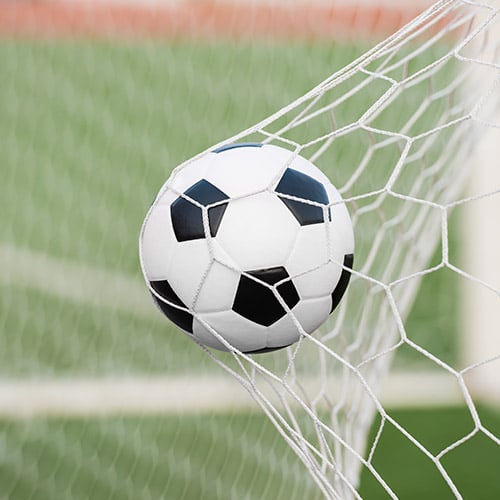You may have heard about Cold-Calling in an educational setting. It’s a very popular strategy in schools – but what about sports?
Cold-Calling can enhance knowledge and encourage participation, which makes it useful outside of the classroom and particularly in training sessions. We’ve been researching how Cold-Calling can help athletes learn and perform better. Here’s what we found…
What is Cold-Calling?
Traditionally, when people ask a question to a group, they use a self-selection styled approach. For example, you might pose a question, wait for people to raise their hands and then chose from this self-selected group. Whilst this works, you may find that you get the same people answering or not, and these group norms can set in very quickly.
Another way of choosing people to answer your questions is Cold-Calling. With this strategy, a coach would pose the question to the group and then ask a specific athlete to answer, whether they have offered to participate or not.
With this strategy, it’s important to give your athletes “wait time” before asking them to answer the question and voice your selection at the last moment. This makes it more effective by leaving everyone enough time to really think about the question and stop the athletes you don’t select to answer from disengaging. This strategy will likely help you boost engagement in the long run and accelerate your athletes’ learning.
So, now we know what Cold-Calling is and what it does to learning, are there any other areas of sport it could benefit?
Cold-Calling and team cohesion
Although asking an athlete a question may sound simple, there are complex group mechanisms behind it. Cold-Calling can reduce something called the Ringelmann Effect. It usually affects larger teams and states that the more people there are on a team, the less effort each member will exert. It’s linked to Social Loafing, which is when a member of a team is not putting in 100% effort, and can make a team overall less productive.
Cold-Calling an athlete can highlight the importance of each member of the group. It shows you are recognising their individual efforts, skills, and knowledge by asking them to answer the question. When you Cold-Call an athlete, it makes them feel significant and it’s almost like you’ve given them a specific role. This will not only promote inclusion but also increase their sense of belonging and motivation.
It also displays that other teammates will not always be there to cover their lack of effort and serve as a reminder that they cannot slack off and that 100% effort is needed. This reduces the effects of Social Loafing.
Cold-Calling is also a great way to encourage team cohesion. If a player is unsure of the answer to your question and is truly stuck, their teammates can help them out or build from their answer. This can allow your athletes to form a better relationship with one another as they know they can turn to their teammates when they’re struggling.
Cold-Calling and insight learning
Cold-Calling is also a great way to promote insight learning. This is a Gestalt Principle that encourages athletes to draw upon their previous experiences and view the situation as a whole to answer the question in a short amount of time.
This could look like asking a long jumper to demonstrate the ideal technique for their take-off from the board. To do this, the athlete would think back to previous times when they performed the skill and try to remember the technique that worked the best. They would also perform the whole skill to decide on the technique that works best for the jump e.g., which foot to take off from.
This is good for enhancing athletes’ learning and understanding of skills and techniques. A skill better understood is a skill more likely to be remembered, making it easier for the athlete to perform it with little thought in the future.
The Cold-Calling dilemma
While many have sung the praises of Cold-Calling, some question its effectiveness. No learning strategy is bulletproof, and Cold-Calling is no exception.
Cold-Calling can make athletes feel like you are putting them on the spot and increase their anxiety levels. Some may feel forced to give you the answer and others may be scared to give you the wrong answer. However, with the correct approach, you can avoid this:
- Try using phrases like “Emma, can you get us started please?”. When Cold-Calling, this signals that the answer does not need to be perfect, which gives the athlete psychological safety and reduces threat levels. This phrase also indicates to the athlete’s teammates that they will have to build off the original answer, further promoting team cohesion.
- To tackle incorrect answers, try using the “turn and talk to your training partner” strategy. It’s great for diffusing awkwardness and stopping feelings of embarrassment from rising.
- Write out Cold-Calling questions in advance to make sure there is no ambiguity allowing your athletes to give or display a clear and specific answer.
- Think about what you want your athletes to do before and after your Cold-Call. For example, you may want your athletes to practice the skill first before you Cold-Call or choose to Cold-Call first before going over the correct technique for the skill.
- Cold-Call often and consistently so your athletes learn to expect it. This will make the strategy less nerve-inducing over time.
Final thoughts
So, there you have it: Cold-Calling isn’t just for classrooms and can be used in your training sessions too. It can be a very effective way to enhance your athletes’ learning and performance as it creates an opportunity for them to use insight learning and improve team dynamics.
Cold-Calling may sound simple but it’s not always an easy technique to master. However, following these tips will improve your Cold-Calling technique which will bring more life to your training sessions and enhance your athletes’ performance.





